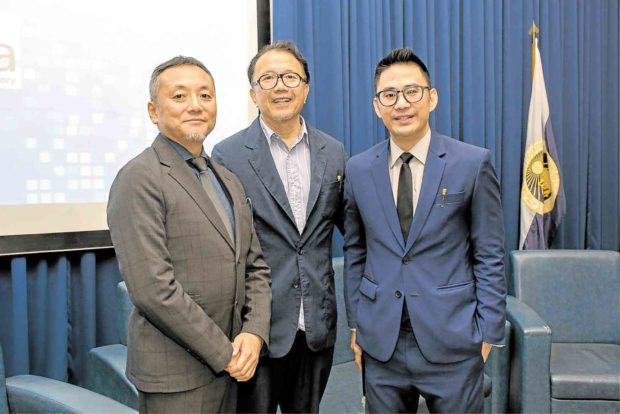The psychology behind drinking milk tea
When companies no longer know where to go, they go to Aaron Palileo, a marketing teacher who, in another life, may as well have been a therapist.
Big names like Giordano and Serenitea have sought out his help.
When the business is in a plateau, the answer, the 42-year old Palileo would say, is not necessarily to add another product in an already crowded list of products.
It’s not just about the product. It’s not about its features, or its promos. It’s deeper than that. Why were your costumers attached to the brand in the first place, he will ask. And if you’ve now lost your touch, how then can you get it back?
“We call this the fog. You don’t know where to go. You don’t know what your future is for your brand,” says Palileo, who co-founded a brand and creative strategizing company called Bootleg Innovation Design back in 2013.
“When they’re in that stage, they really do seek us out. Why? Because traditional research will not get them there,” he says.
The company became CIA Bootleg Manila late last year, when it partnered with Creative Intelligence Associates (CIA) Japan, the oldest brand strategy in Japan which helped Uniqlo grow to the popular fast fashion retail chain it is today.
Bootleg Manila does all this through professional psychologists in their team, who would interview consumers who frequent the brand and those who go to competitors or do not like it in the first place, in an effort to find out what influenced these behaviors.
The process involves regression, which simply means the psychologist helps an interviewee go back to an earlier memory associated with a certain product, he says.
This then leads to what he calls the “deepest self-serving goals of the people,” or simply, their “imprints.”
“Imagine a clinical counselor who can extract sensitive information from people. Imagine they are the ones [getting] the consumer insight. Never has it been done before,” he says.
He clarifies consumers consent to the exercise.
Bootleg’s business runs under the assumption there are deeper reasons behind our spending habits.
Say, in a fast food market where so many other restaurants offer fried chicken and breakfast meals, many choose McDonald’s not necessarily because of its food, but because of the nostalgia it evokes.
(The author remembers how, when he was still a child, out of town trips were special because the family would surely stop by a McDonald’s for breakfast. His mom would slice the pancakes into small squares before feeding him.)
But what Palileo notices is that many companies in the Philippines tend to focus on what their products and services can offer. To an extent, those qualities are important, but they are not everything.
Back when the company behind the popular Serenitea Milk Tea approached Bootleg, the market was getting crowded with other players that wanted to jump into the milk tea craze.
The problem of Serenitea Cha Kitchen Inc., like other companies in other industries, was that it focused solely on its product features.
“If you asked Serenitea then, they’d say we have freshly made milk tea. Again, [it’s all about] the feature. The problem with features is it can be copied easily,” he says.
So Palileo—with his college friends and now co-founders Paolo Abella and Jay Amante— wanted to find out the deeper impulses that make consumers like milk tea.
The psychologists in their team found out that people loved milk tea because the drink, which only became popular in recent years, reminded them of their high school and college days—or when they were young.
Then they dug deeper. The milk, as expected, evoked memories of their mothers.
Then the tea, which the psychologists found out reminded the respondents about eastern medicine and how tea could help heal.
“We created the tagline from there,” he said: “Have a moment of Serenitea.”
Everything else followed, from a new logo design to store visuals, in-store music and product development plan.
The Philippines’ psychological makeup when it comes to branding is different and can still be tweaked.
Palileo says that, unlike in Japan, many local companies do not do prototypes. When they launch something new, they either go big or go home.
The case is different in Japan.
Sy Chen, the founder of CIA Japan, said in an interview with reporters last September that Uniqlo had to have a prototype store for six months where the company could experiment possible strategies before making a big launch. It’s a process, he said, “of editing and re-editing.”
Launching Uniqlo was a smash hit, he said, recalling the days back in the 90s. “But that’s not achieved just by designing it. That’s achieved because we went through the prototyping process [of] editing and re-editing.”
Not all clients who asked for their advice were successful, they admit. CIA Bootleg Manila, which has less than 20 people, only makes the recommendations, but the client alone will act on them.
Some of their clients even forget the strategies. Some, Palileo says, water it down. But even in these cases, he can’t help but call them out.
“We get emotionally invested,” he says.















